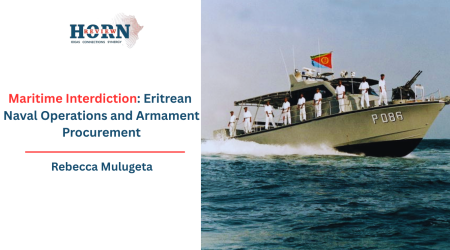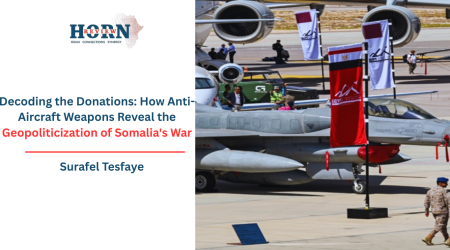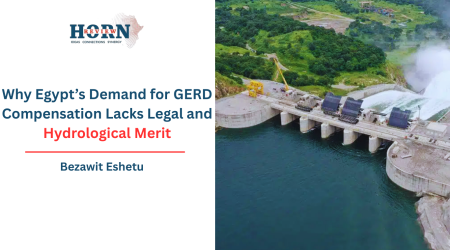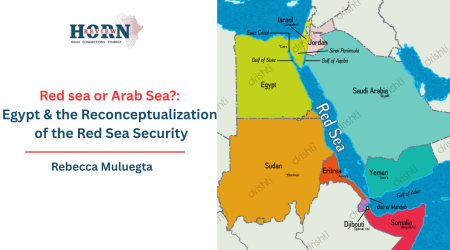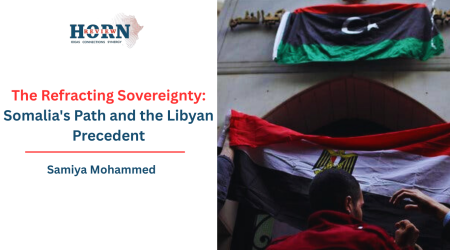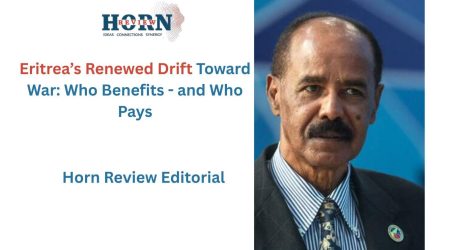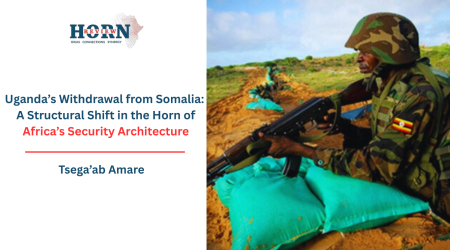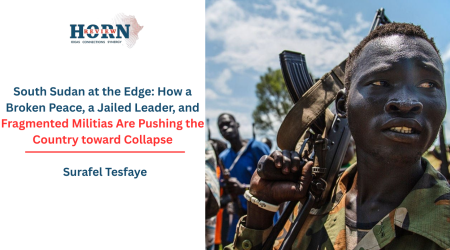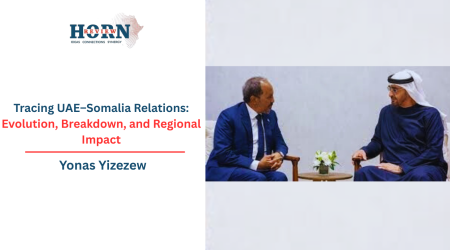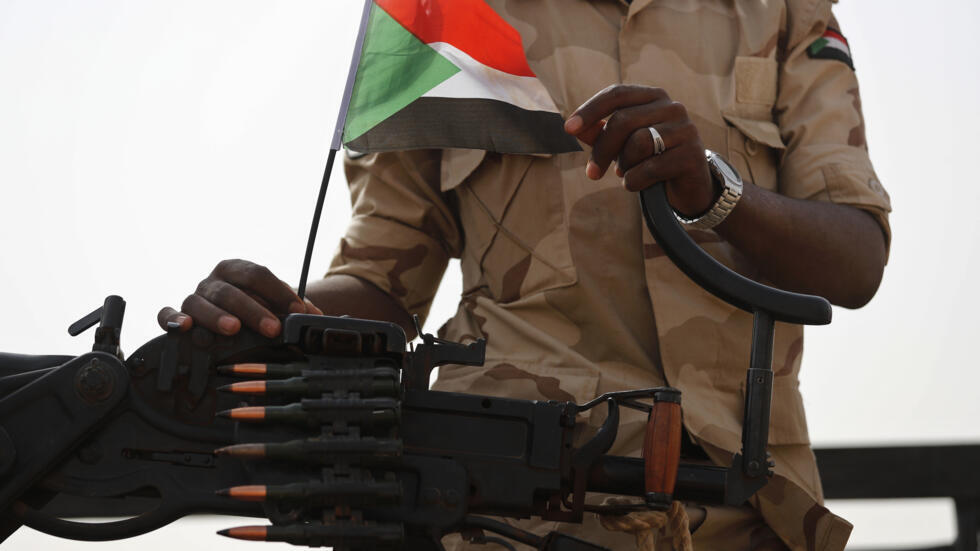
9
Jul
A Nation Fractured and A Region Imperiled: Sudan’s Descent from Revolution to Fragmentation
Sudan, a nation rich in history and potential, finds itself today at the center of a devastating civil war. Sudan’s post-colonial history has always been defined by consistent difficulties surrounding vulnerability of the state, lawlessness, and instability, telling signs of the repressive government structure that has heightened class inequalities and racial divisions. Power has historically been seized and exercised via autocratic measures instead of thorough democratic means, creating a cycle of instability. Economic policies, as well, have exacerbated inequality, concentrating wealth within an elite few at the expense of deprivation for marginalized groups (Amani Africa, 2025).
The roots of Sudan’s current turmoil stretch back to the three-decade authoritarian rule of Omar al-Bashir, which earned notoriety due to its systemic corruption, economic mismanagement, and diversion of public funds to regime loyalists and militias, largely in highly lucrative industries like gold mining (Chatham House, 2025). Bashir’s policy, “Tamkeen” or empowerment, embedded loyalists’ dominance in key state and economic structures, thus cultivating widespread resentment amongst the public.
This growing ire peaked in December 2018 when protests, originally triggered by a sharp bread price rise, erupted across the country. As these demonstrations grew in strength, they transformed into a mass-scale countrywide movement calling for Bashir’s ouster, underscoring civil society’s mobilizational power, which found its avatar in the Sudanese Professionals Association and grassroots Resistance Committees.
The Illusion of Transition
While Omar al-Bashir was not ousted in a classic coup, neither did he step down voluntarily. Following a series of intense negotiations among senior military leaders, he was ultimately arrested. His downfall was less the result of a sudden military takeover than of a gradual erosion of authority; by failing to address the core grievances fueling the mass protests, Bashir effectively worked himself out of power.
Although Lt. Gen. Ahmed Awad Ibn Auf briefly assumed control of the Sudanese Armed Forces, his close association with the old regime and refusal to extradite Bashir to the International Criminal Court provoked immediate public outrage and compelled him to resign within hours. He was succeeded by Lt. Gen. Abdel Fattah al-Burhan, who moved swiftly to lift the curfew and release political prisoners; measures designed to appease the protest movement while ensuring that ultimate authority remained squarely with the military (Chatham House, 2019).
The subsequent formation of the Transitional Military Council (TMC), with al-Burhan as its head and Lt. Gen. Mohamed H. Dagalo (Hemedti) as his deputy, solidified the military’s grip. Hemedti’s rise was particularly significant, given his command of the RSF, a paramilitary force with origins in the notorious Janjaweed militias of Darfur (Britannica, 2025). Hemedti, commanding the RSF and controlling key gold mines in Darfur, turned the paramilitary into a financially independent and politically powerful force.
Despite the military’s dominance, sustained popular protests compelled the Transitional Military Council (TMC) to negotiate with the Forces for Freedom and Change, resulting in a power-sharing agreement and the establishment of a joint civilian-military Sovereign Council in August 2019 (Council on Foreign Relations, 2025). Abdalla Hamdok, a respected economist, was appointed Prime Minister and charged with steering Sudan through severe economic and political turmoil.
However, Hamdok proved incapable of steering the country through a time characterized by great crisis and strife; his technocratic, consensus-driven style failed to win confidence amongst both sides, and the combined incapability of the three leaders ultimately paved the way for the full-blown war. His tenure accentuated that Sudan’s transition must be headed by a leader with both strategic vision and the ability to command broad public confidence, attributes that, despite his integrity, Hamdok lacked. Support for Hamdok by the military constituted more of a strategic compromise to garner international legitimacy than evidence of a genuine commitment to civilian rule.
A critical factor in the breakdown of civilian-military relations was the setting up of the Empowerment Removal Committee (ERC) in 2019, which sought to purge Bashir-era officials and recover illicitly gained funds. The ERC directly challenged deeply entrenched economic and political networks connected to the former regime, including the military-industrial complex and gold economy (Chatham House, 2025). Its actions threatened the patronage networks and interests of groups within the SAF and RSF, which had profited from gold mining operations. Al-Burhan’s dissolution of the ERC after the October 2021 coup was widely interpreted as a setback in holding people accountable and a protective act, thus further clearing the ground for future conflict.
The simmering tensions between the SAF and RSF erupted into full-scale civil war on April 15, 2023. The immediate trigger for this war was an international-backed plan of integrating the RSF into the regular army. This integration posed an existential threat to both generals’ power and the RSF’s autonomy, which made war a certainty because neither side wished to be weakened in a post-transition landscape. For Hemedti and RSF, this integration jeopardized their control over lucrative economic sectors. It also stands out that both groups had a fear of accountability for past abuses.
The conflict began with coordinated RSF attacks on government sites in Khartoum, including a raid on al-Burhan’s residence. Though the SAF, as a conventional army, possessed heavy weaponry and air superiority, they were initially halted by RSF sieges that had effectively surrounded their bases within Khartoum. The RSF, highly mobile and adept at rural and desert warfare, benefited from robust supply networks, facilitated through neighboring countries such as Libya and Chad, and via the Red Sea, reportedly supported by the UAE and Wagner Group.
Meanwhile, Sudan’s Armed Forces have also suffered repercussions due to their institutional weaknesses, including a lack of discipline, partisan fictionalization, and changing allegiances; all of which have collectively led to a surprise withdrawal from strategic cities like Wad Madani.
Despite devastating loss of human life, both SAF and RSF remain convinced war serves their interests, a position much fortified by “ample outside support” (International Rescue Committee, 2023). Foreign powers like Egypt and the UAE aggravate the conflict by backing opposing sides, turning Sudan into a segregated war zone, and prolonging the war.
This is further complicated by the influence of the Muslim Brotherhood: SAF elements, most associated with former president Omar al-Bashir, have continued to have close links to Sudan’s Muslim Brotherhood, a movement that originally facilitated al-Bashir’s ascendancy to power, which still wields vast influence within Sudan’s army (Agenzia Nova, 2025). Such growing dependence on such Islamist formations, while fortifying support for the army, hinders peace-making because of their demand that all reconciliation that includes RSF (Rapid Support Forces) forces will be disregarded (Agenzia Nova, 2025). By contrast, the United Arab Emirates’ backing for RSF reflects its regional approach seeking to counter Muslim Brotherhood influence, which it believes poses a threat. This ideological divergence ensures external backing continues to fuel the conflict, making a resolution harder to achieve.
This war has led Sudan to witness an unprecedented humanitarian disaster, subsequently causing the most widespread and quickest growing displacement crisis worldwide. Today, more than 30 million people are in pressing need of immediate protection and humanitarian aid (UNOCHA, 2025). Both the SAF and RSF have been accused of various serious human rights abuses, including mass killing of civilians, intentional attacks on civilian targets, and intentional denial of humanitarian services. RSF, more notably, has been accused of carrying out various war crimes, including mass rapes, tortures, looting, and carrying out ethnic cleansing operations against non-Arab tribes including the Fur, Masalit, and Zaghawa tribesmen in Darfur (Amnesty International, 2025).
Sudan’s civil war remains a devastating stalemate, with both the SAF and RSF locked in a brutal struggle for control. Despite some territorial shifts, like the SAF briefly recapturing Wad Madani and Khartoum in early 2025. The RSF has recently clawed back territory in remote borderlands linking Sudan to Libya and Egypt, and continues its concentrated offensive against El Fasher, the SAF’s last significant stronghold in Darfur.
Control over El Fasher is widely considered crucial for determining the overall outcome of the war in Darfur and, by extension, the broader conflict across Sudan. The battle for El Fasher is not just a military clash but a re-ignition of long-standing ethnic and land-based grievances, exacerbating the humanitarian crisis for over a million civilians trapped in the city.
Continued conflict greatly increases the risk of Sudan fragmenting into disparate regions. As both the Sudanese Armed Forces (SAF) and Rapid Support Forces (RSF) aim to have parallel governments, Sudan moves closer to the realization of devastating worst-case situations, much like the disintegration in Libya or complete collapse in Somalia. Spillover effects are substantial threats evidenced by signs indicating renewed exacerbation of South Sudan to a full-blown civil war, following refugees’ inflows and alleged RSF operations.
To avert this deepening catastrophe, there is a dire need for a genuine, all-encompassing, and civilian-driven peace process. Mediation efforts must be robustly led by trusted regional bodies like the African Union and IGAD, alongside neighboring countries such as Ethiopia and South Sudan, leveraging their deep understanding of the regional complexities.
Crucially, any long-lasting solution must prioritize the welfare and aspirations of Sudanese civilians, not merely the interests of military elites. International diplomacy, therefore, must refrain from legitimizing warlords and instead consistently support the vibrant grassroots Sudanese civil society and democracy movements, empowering them to lead the nation towards a sustainable and inclusive future.
By Tsega’ab Amare and Tselot Getachew,Researchers,Horn Review
Reference
1. Agenzia Nova. (2025, May 19). Sudan: The role of Islamist militias in the conflict worries Arab countries hostile to the Muslim Brotherhood.https://www.agenzianova.com/en/news/Sudan%3A-The-role-of-Islamist-militias-in-the-conflict-worries-Arab-countries-hostile-to-their-Muslim-brothers/
2. Amani Africa. (2025, February 14). Consideration of the situation in Sudan. https://amaniafrica-et.org/consideration-of-the-situation-in-sudan-feb14-2025/
3. Amnesty International. (2025, April 29). Human rights in Sudan. https://www.amnesty.org/en/location/africa/east-africa-the-horn-and-great-lakes/sudan/report-sudan/
4. Chatham House. (2019, April 15). Sudan’s military transition and the road ahead. Royal Institute of International Affairs. https://www.chathamhouse.org/2019/04/sudans-military-transition
5. Chatham House. (2025, March). Gold and war in Sudan: Securitization of Sudan’s gold sector. https://www.chathamhouse.org/2025/03/gold-and-war-sudan/02-securitization-sudans-gold-sector
6. Council on Foreign Relations. (2025, April 15). Power struggle in Sudan. Global Conflict Tracker.https://www.cfr.org/global-conflict-tracker/conflict/power-struggle-sudan (cfr.org)
Britannica. (2025, June 25). Rapid Support Forces. https://www.britannica.com/topic/Rapid-Support-Forces (britannica.com)
7. UNOCHA. (2025, January 23). Sudan: Humanitarian Needs and Response Plan 2025 – Overview. https://www.unocha.org/publications/report/sudan/sudan-humanitarian-needs-and-response-plan-2025-overview

